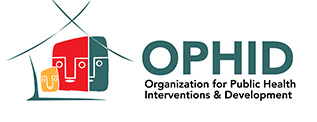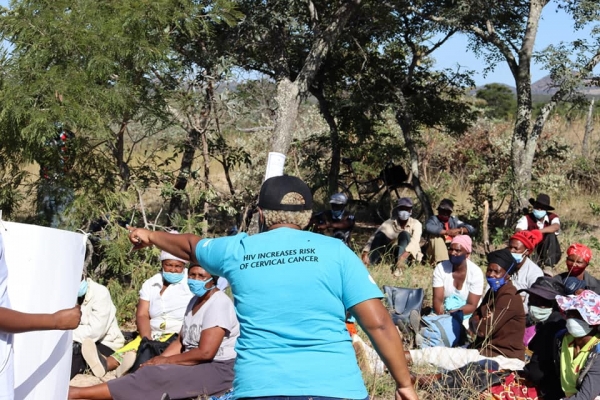In collaboration with the Ministry of Health and Child Care the TASQC program has been able to engage and sensitize communities including religious, traditional, political leaders on key barriers affecting PLHIV and communities’ access to HIV and other health related services. Through routine community awareness and mobilization sessions conducted by the Community Outreach Agents, the team managed to interact with Tracy Moyo (not her real name). Tracy comes from a family that strongly believes in traditional medicines and practices and had no interest in taking up modern medicines. Through a close friend who had interacted with the COA for the Xalanga B community in Insiza, she got to know about an outreach event that had been planned close to her homestead.
“I was told about the planned outreach by one of my close friends who had met the COAs, through a pamphlet she shared information on the services offered by the USAID funded TASCQ project, the pamphlet also had the dates and meeting place, I got to understand about HIV testing, treatment and care services that were being offered , I realized that I had to make an effort to visit the team that was mobilizing, what moved me the most was that I had Iost another close friend that I had been staying with in South Africa to HIV, when I received the message I was worried because we used to hang around together as “sex workers” and I am not shy to say that. I left South Africa in March last year and I had not been tested for HIV not because of the long distance between where I stayed and the health facility. The nearest health facility was about 30KM and considering that I was not working I could not afford to pay for transport,” said Tracy.
Tracy decided to get tested because she felt that she had been at risk due to the nature of her work. The level of privacy as she received HIV testing services at the outreach point made her feel comfortable. The closed tents made her feel secure as she was using the Ora quick HIV self-testing kit. “I would also want to acknowledge the level of health education that we received before receiving the services, especially on cervical cancer screening. I got to know about cervical cancer screening through the radio talk shows done by OPHID through Sky-metro FM and this outreach came as a great opportunity for me and my sisters. Thank you for supporting our community with the community outreach agents with information and bringing these services to the people especially during this COVID-19 pandemic,” said Tracy
The community outreach approach is an innovative and adaptive action to reach vulnerable, at-risk populations and ensure that no one is left behind by providing a “one stop” for HIV Testing, Viral Load screening, TB Preventive Treatment (TPT), index case testing and cervical cancer screening in hard-to-reach areas. As indicated by Tracy most of the rural communities are unemployed and find it hard to travel to facilities to seek the services and our approach to bring the services closer helps communities to channel the little hey have to food, education and hence improved standard of their lives.
With support from PEPFAR through USAID Zimbabwe, OPHID has been implementing community outreaches under the Target, Accelerate and Sustain Quality Care (TASQC) for HIV epidemic control Program in partnership with JF Kapnek Trust and Zimbabwe National Network of People Living with HIV (ZNNP+). Under TASQC, OPHID and its partners support targeted acceleration of quality HIV prevention, care and treatment services at facility and community level in 15 priority districts in Chitungwiza, Masvingo, Bulawayo and Matabeleland South.


